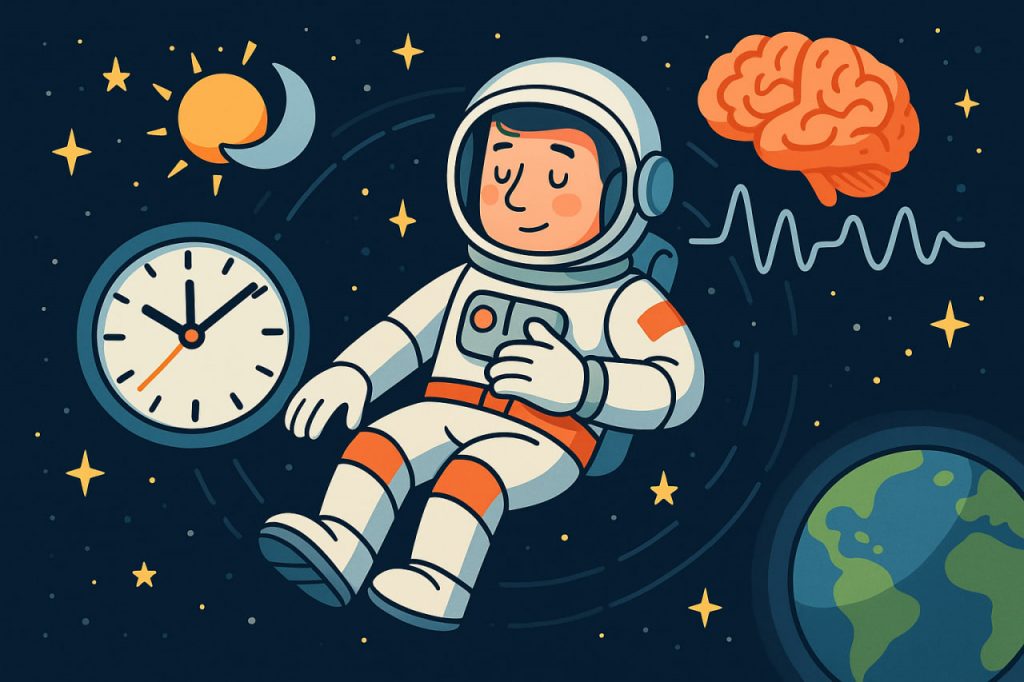Human beings are adapted to life on Earth, where biological rhythms are synchronized with the 24-hour day-night cycle. These rhythms, known as circadian rhythms, regulate sleep, hormone production, metabolism, and many other processes. In space, astronauts leave behind Earth’s natural cycles, facing conditions that strongly disrupt their internal clocks. Studying these effects is vital for future long-term space missions.
Circadian Rhythms in Space
On Earth, circadian rhythms are guided by sunlight and darkness. In space, especially aboard the International Space Station (ISS), astronauts see a sunrise and sunset every 90 minutes as the station orbits Earth. This constant shift confuses the brain, making it difficult to maintain a regular sleep-wake cycle. Without stable light cues, the body struggles to know when to rest or stay awake.
Impact on Sleep
Astronauts often suffer from sleep problems such as insomnia, shorter sleep duration, or irregular sleep patterns. Fatigue becomes a serious issue, as it affects concentration, reaction time, and decision-making. Special light systems on the ISS are used to mimic natural day and night cycles, helping astronauts adjust their rhythms.
Hormonal Changes
Space travel influences hormones like melatonin, which regulates sleep, and cortisol, the stress hormone. Disruptions in these hormones affect not only sleep but also mood, immune function, and metabolism. Long-term imbalance can lead to weakened health and lower performance during missions.
Metabolic and Immune Effects
Biological rhythms also control digestion, energy use, and immune responses. In space, irregular rhythms can disrupt appetite, nutrient absorption, and body weight control. The immune system may also become less effective, making astronauts more vulnerable to infections.
Psychological Factors
Living in confined spaces, isolation, and the absence of natural light add psychological stress that further disturbs biological rhythms. Mood swings, irritability, and decreased motivation are often linked to disrupted circadian cycles in space.
Adaptation Strategies
Scientists are developing strategies to help astronauts cope with disrupted rhythms:
- Artificial lighting that simulates Earth’s day and night.
- Strict schedules for sleep, meals, and exercise.
- Use of melatonin supplements under medical supervision.
- Monitoring of biological rhythms to detect problems early.
Conclusion
Space has a profound effect on human biological rhythms by disrupting natural cycles of light and darkness. This leads to sleep issues, hormonal imbalances, and weakened health. With the help of artificial lighting, strict routines, and medical support, astronauts can adapt, but long-term missions will require even more advanced solutions to protect circadian health.
Glossary
- Biological rhythms – natural cycles in the body, such as sleep-wake cycles.
- Circadian rhythm – the 24-hour internal clock regulating biological processes.
- Melatonin – a hormone that regulates sleep and wakefulness.
- Cortisol – a hormone related to stress and energy regulation.
- Artificial lighting systems – light technologies used to mimic Earth’s natural day-night cycle.


